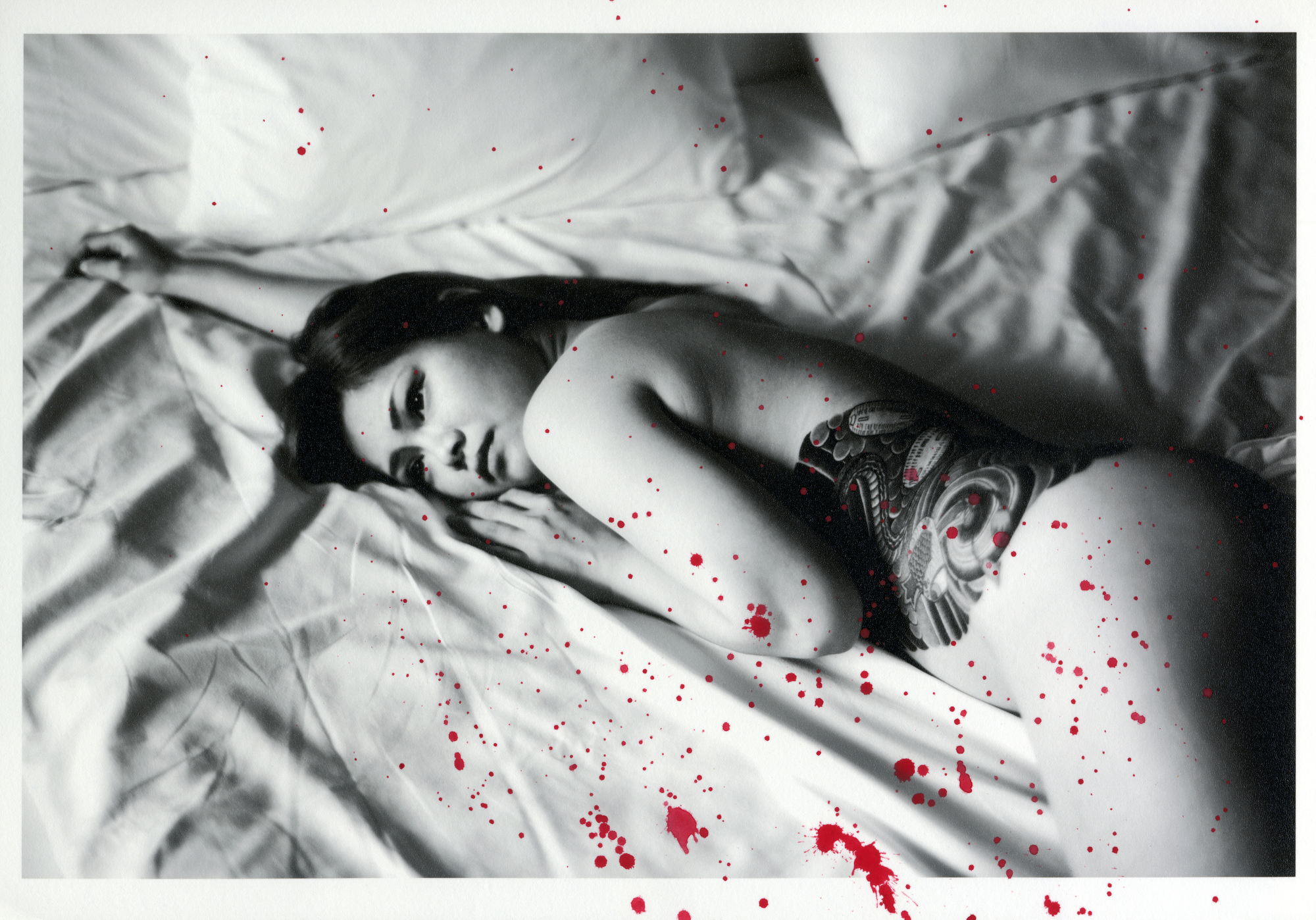No one enters the Yakuza without an invitation, and so, for most of us, our only glimpse into the world of the Japanese mob has been in movies. In ninkyo films, the gangsters manifest as honourable heirs to the samurai code; in jitsuroku films, they’re portrayed as violent street thugs living off their own desires. Given the Yakuza’s strict adherence to secrecy, photo-documentary series — save for Seiji Kurata’s legendary Flash Up (1980), a full-throttle descent into Tokyo’s underground network of clans — are uncommon. Photographed accounts of the women — the wives, daughters, maids and mistresses — who orbit these men’s nefarious affairs are near non-existent.
Driven by her determination to unlock the impenetrable clan, inspired by reading Shōko Tendō’s Yakuza Moon: Memoirs of a Gangster’s Daughter (2012), French photographer Chloé Jafé has achieved just that. “Getting ‘in’ was a long and tough road,” says Chloé, whose series 命預けます (I give you my life) is an unprecedented vision of the secret lives of Yakuza women. “I had no idea about how much was reality and how much was just pure fantasy.” Arriving in Tokyo off the back of a breakup, Chloé’s first priority was to learn Japanese in order to get closer to her desired subjects. “This was challenging because, in Japan, you never say ‘No’, and even silence can have various implications.”
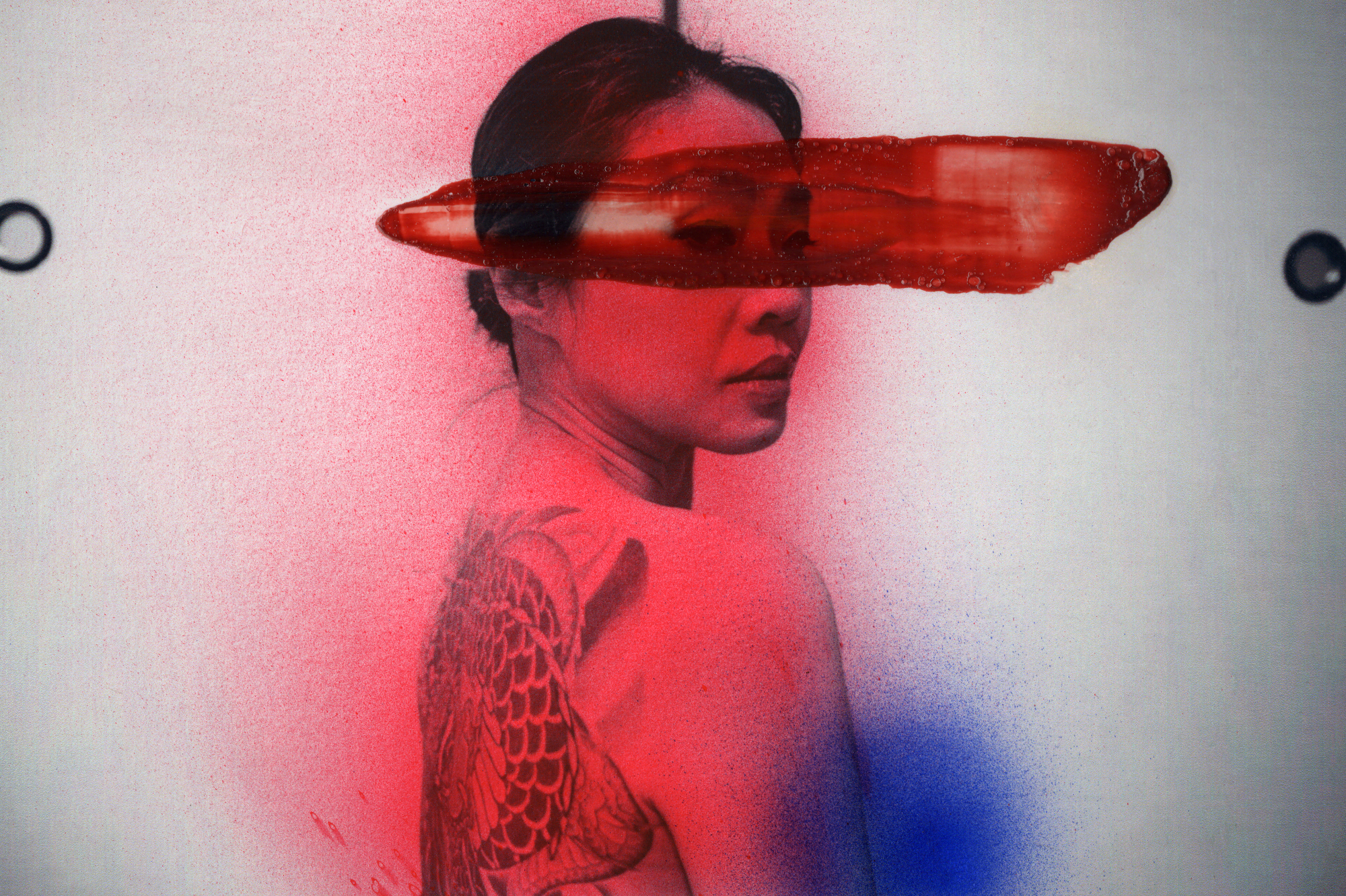
But Chloé was aware of the dangers “Yes” had too. “Some of the friends I had made started to avoid me, concerned that I would get into trouble and inadvertently involve them in my pursuits,” she recalls. She was combing the city’s red-light districts. Her nights, she says, ended with too much shōchū, though she does recall the tip-offs, close-calls and dead-ends. In March 2014, Chloé wrote in her diary: “I thought I had met a Yakuza but I soon realised that he was just a chinpira (thug) who was only trying to make out with me. It makes me angry. How will I ever access the women I am looking for…?”
Chloé subsequently got a gig as a hostess in a Tokyo bar, which seemed like a good place to learn the gestures and attitudes she needed to adopt to entertain a Japanese man. “What became clear to me was that women had little freedom to make any decisions in life,” Chloé says. “So I realised that I would need to go through the men.”
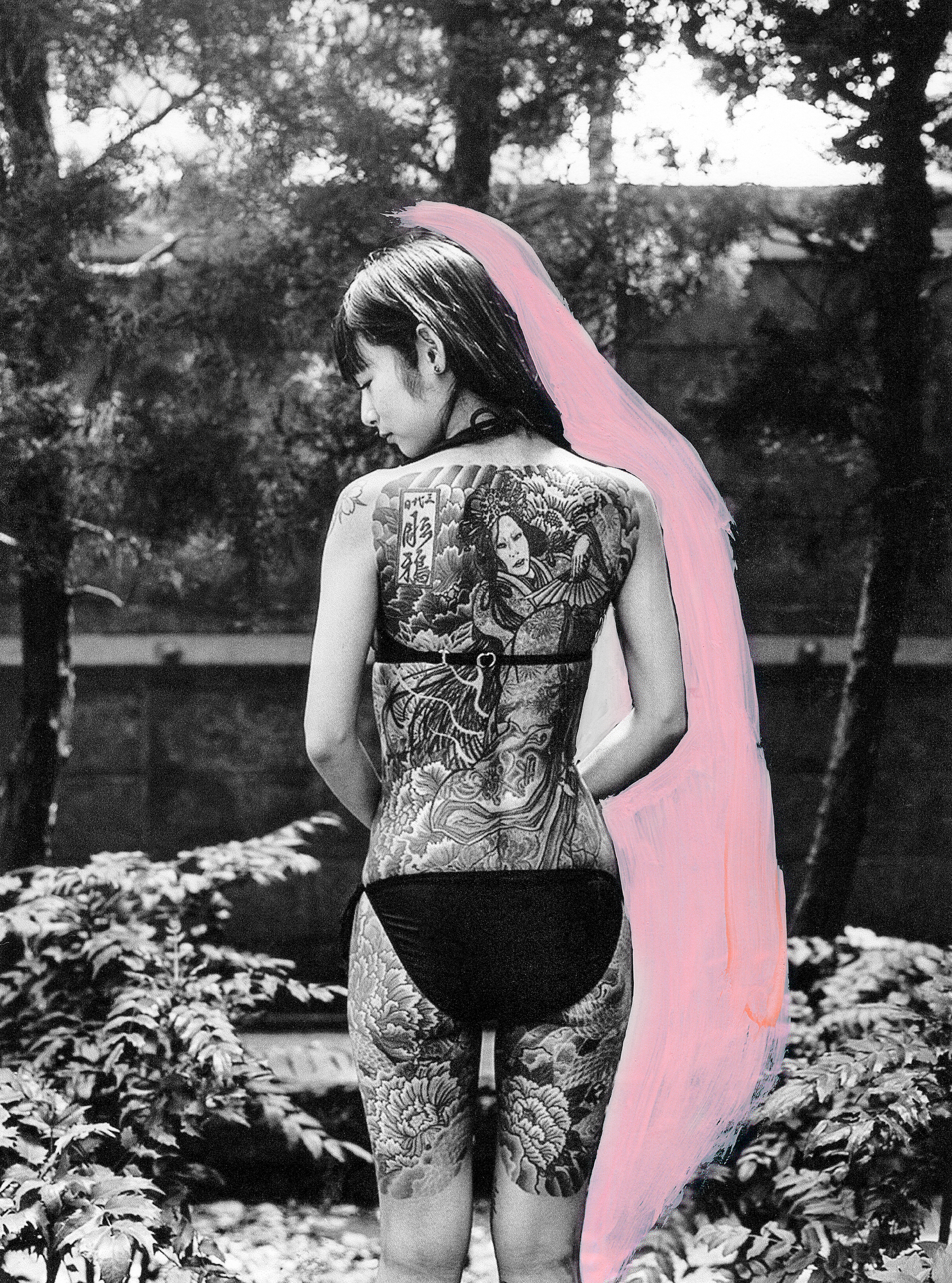
It was two years later that Chloé met an oyabun (Boss) at a matsuri (festival). He offered her a beer, and they organised an appointment. Chloé says the encounter was a “lucky” one, but the sheer temerity she exercised thereafter should not be underestimated. Embarking on what she calls an “initiatory journey”, Chloé had to be patient, pleasing and benign.
Slowly, Chloé was granted access to their inner circle and, eventually, the ane-san (Boss’ wife). Unlike Western mafia wives, Yakuza wives remain outside the sphere of criminal activity. Although the women play a vital role in running the clan – managing finances, resolving quarrels and providing emotional support – they are barred from being active participants or formal members. “Patriarchy is as present in the underworld as it is throughout the whole of Japan,” Chloé says. “You either accept it, or you don’t get married.”
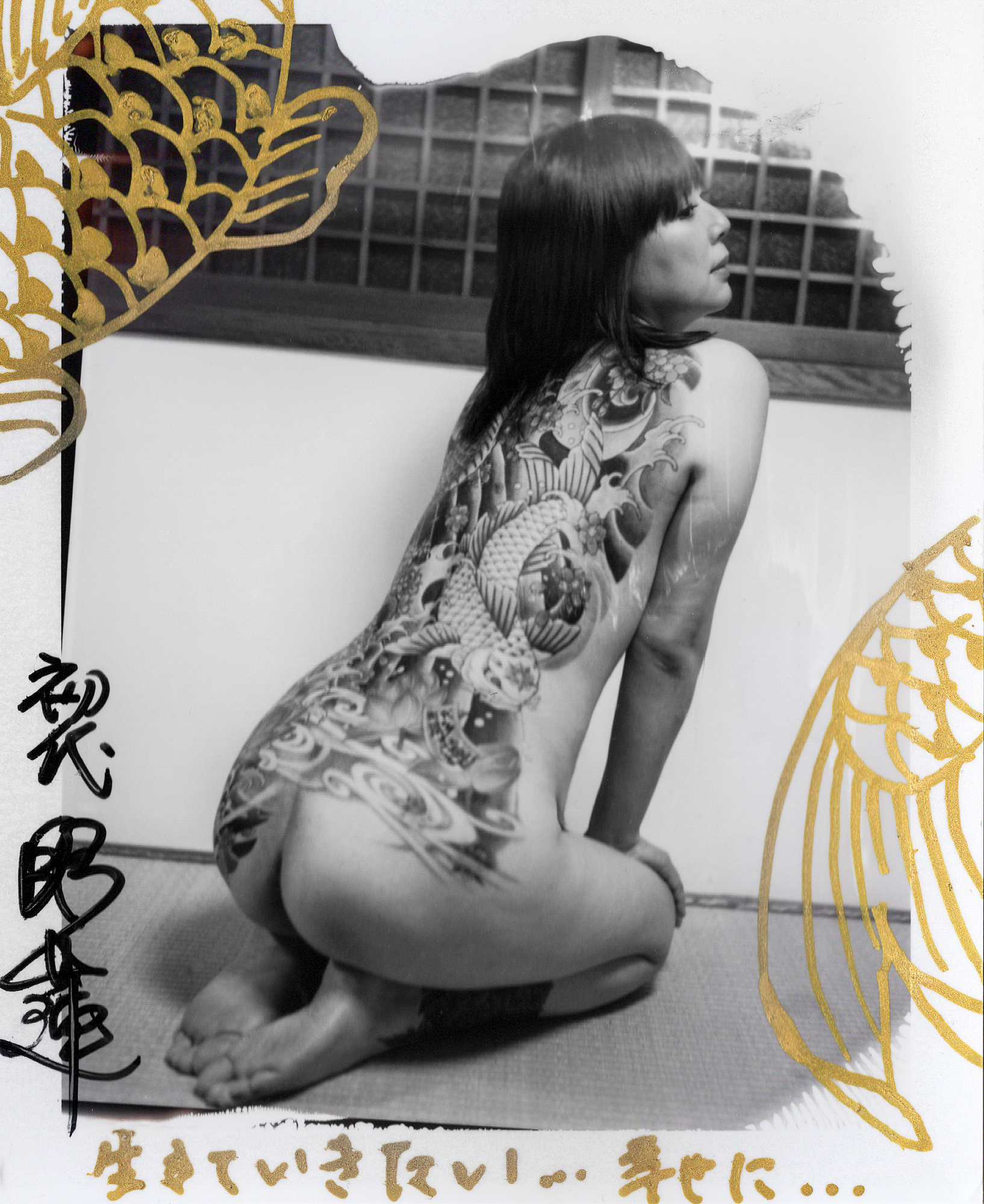
I give you my life – as its title suggests – highlights the complex interplay between independence and allegiance. Occasionally, we are privy to scenes in which the women’s subservience is clear: they lurk in the shadows, bow and deliver food. But, as criminologist Rie Alkemade articulates in Outsiders Amongst Outsiders – a study Chloé cites – the wives often mirror and mimic the very rituals their husbands forbid them from participating in. By exaggerating their sense of self-importance within the limiting structures of the Yakuza, they operate within a parallel, shadow world – a sub-subculture.
Nowhere is this sense of sisterhood more prominent in Chloé’s series than in the photographs which centre on the art of irezumi. Picturing women, proudly displaying their nude and intricately inked bodies, they feel intimate and collaborative. But there’s also enough opaqueness in them to know that Chloé honoured certain degrees of distance too. “Tattoos are still pretty taboo in Japan,” Chloé says. “When you get inked, you are really stepping outside mainstream society, so it takes courage to reveal them. They’re deeply spiritual and not intended to be shown.”
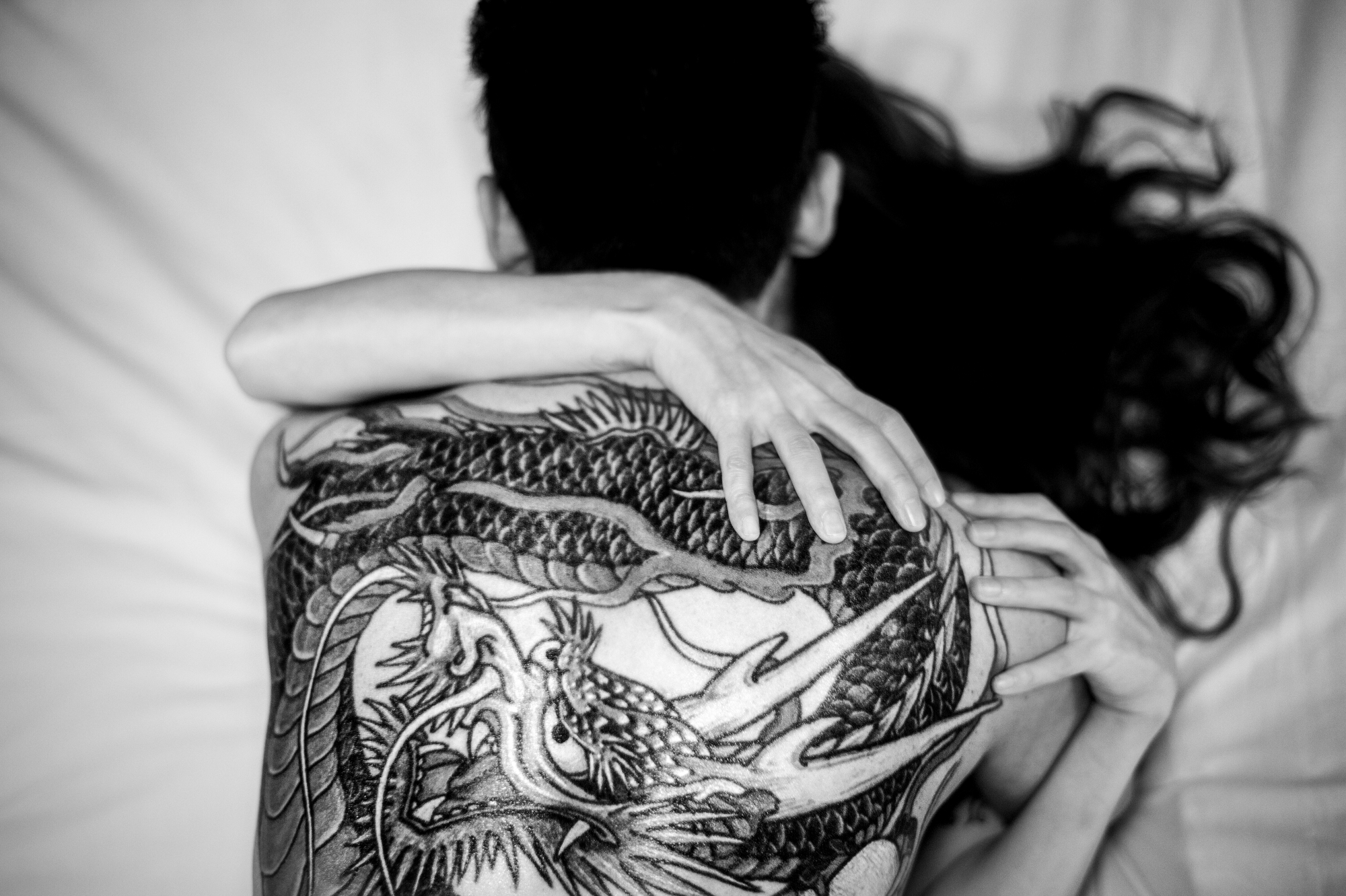
“I was just a woman trying to understand another woman,” she adds. “The element of exchange was vital for me, so I invited these women to write me letters about their tattoos.” They were incorporated in Chloé’s intricately designed, self-published book in 2020. “I’m ready to put my life in his hands and keep loving him,” Anna, who tattooed the name of the man she loves onto her neck, says. Another woman, named Jun, says: “The man I was with when I was 40 had tattoos, and looking at my own naked body without any tattoos made me feel weak.” There’s also Yuko, who got hers after her divorce: “I wanted to discourage certain guys from approaching me… To live independently as a woman for the rest of my life.”
Years later, Chloé’s series continues to evolve in surprising ways, as evidenced by a sumptuous set of new prints which currently grace the walls of the monumental Chiostri di San Pietro in Reggio Emilia, Italy, as part of Fotografia Europea. They have been painted over in watercolour, with semi-precious stones embedded in certain outlines of the figures. “Intervention remains an important part of my practice,” Chloé says. “Combining colour with black-and-white certainly adds another level of reality, but I want to leave things open too. To pose questions that confront audiences.”

More than a story about how an outsider got “in”, I give you my life is about devotion — the devotion practised by women on both sides of the lens. It’s in Chloé’s collapsing of the distinctions between photographer and subject, life and art, that makes her such a distinct voice in documentary photography. A young woman navigating a very specific set of social circles — while never losing sight of her resolute feminist commitment — Chloé offered herself to her work in a manner befitting of the subject at hand. “Photography is a lie but I try to be as sincere as possible,” Chloé says. “Sometimes, this involves me becoming the subject, who ultimately becomes inseparable from my life. Photography is supposed to be this door to get ‘in’ and ‘out’, but my boundaries are very blurry.”
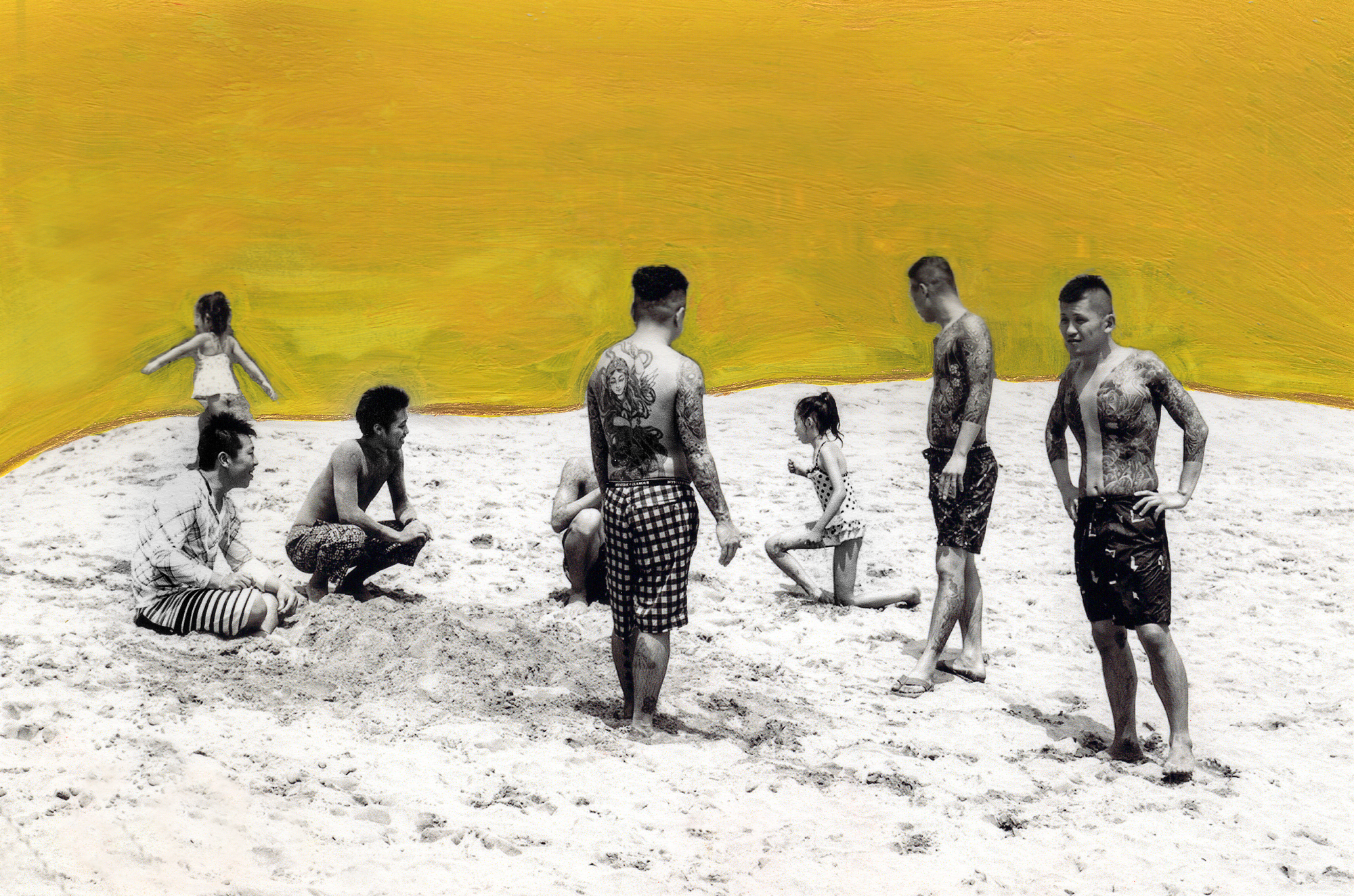
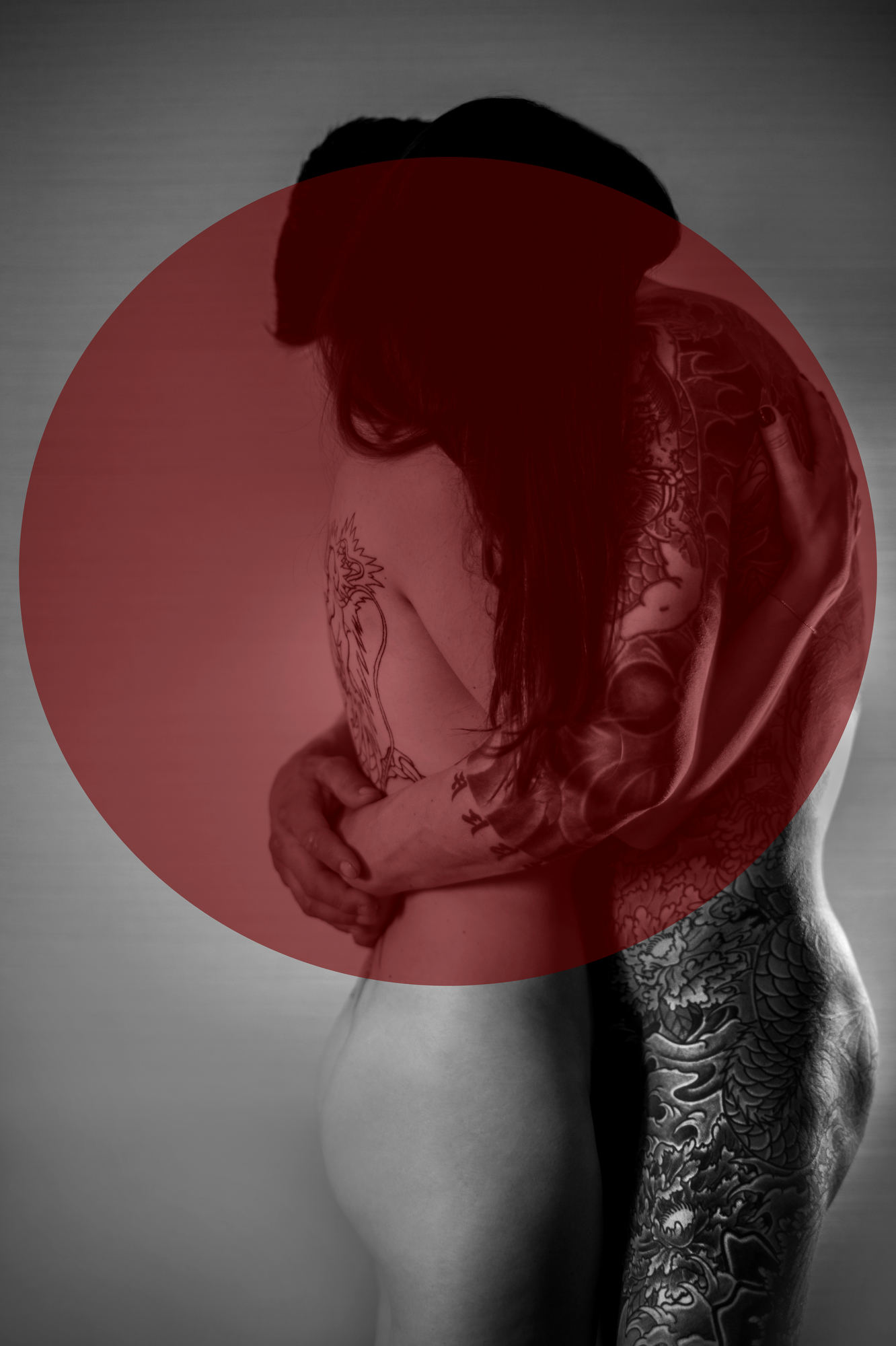
命預けます (I give you my life) is on display at Chiostri di San Pietro, as part of Fotografia Europea, Reggio Emilia, Italy, until 12 June. Follow i-D on Instagram and TikTok for more photography.
Credits
Photography Chloé Jafé
